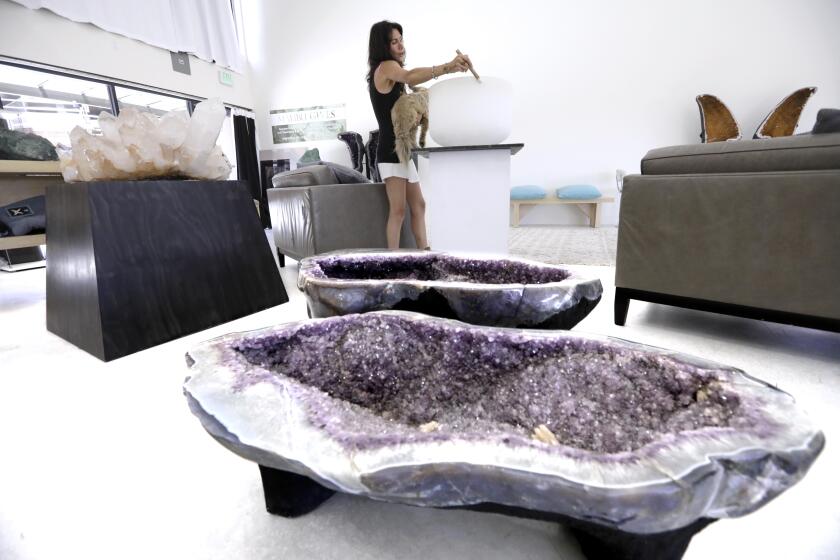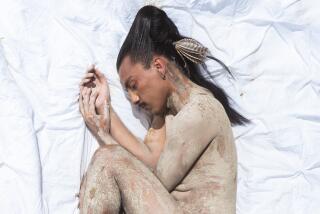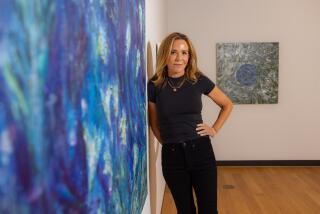This feminist witch introduced California to Goddess worship
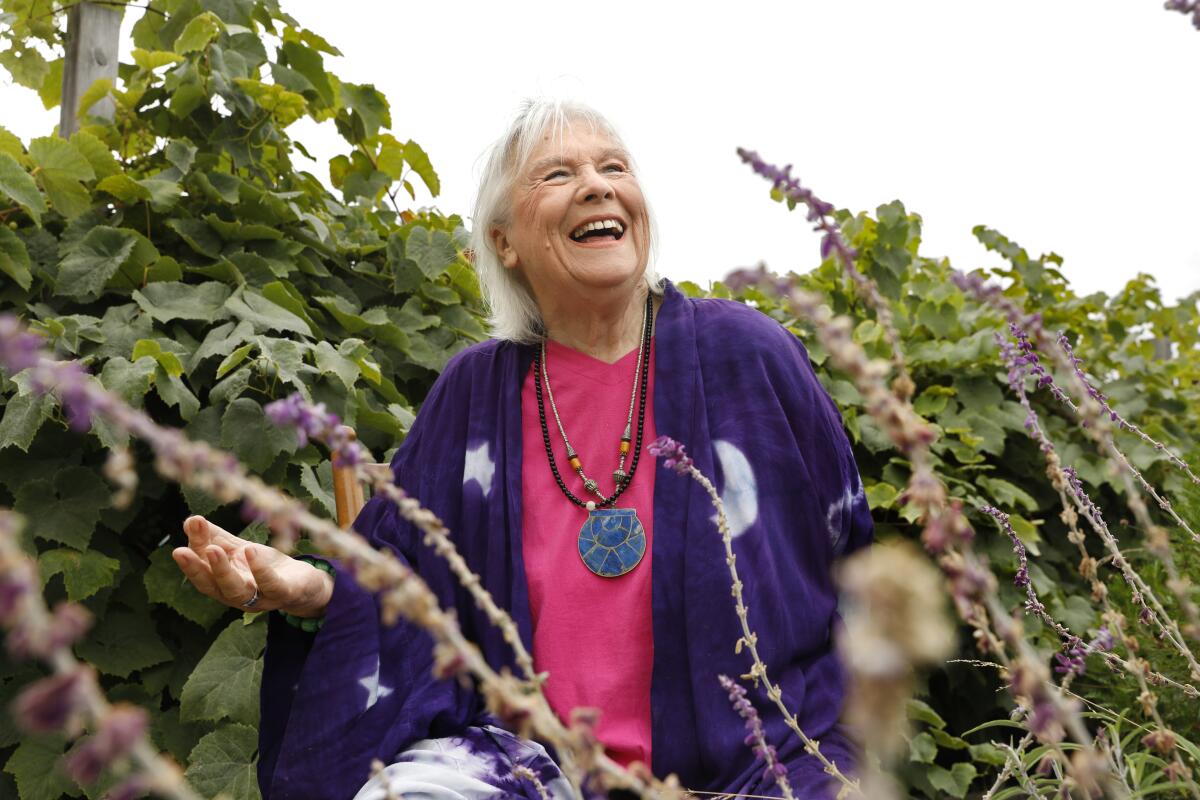
SANTA CRUZ — In a small stucco house in a retirement community near Santa Cruz, an 81-year-old witch is writing a television series.
She calls it “Baba Boogie and the Berkeley Broads.”
The premise goes like this: Baba Boogie is a reluctant immortal — old and tired. All her friends have passed on, but she herself cannot die until she finds a new generation of women to receive her superpowers.
When a quartet of granny peace activists from Berkeley winds up in jail, Baba Boogie comes to their aid and finds the perfect group to teach her secrets.
Fun, adventure and magic ensue.
Fiction, yes, but it’s easy to see parallels between Baba Boogie and the screenwriter, Zsuzsanna Budapest. For 50 years, Budapest dedicated much of her life to creating and disseminating Dianic Wicca, a feminist, Goddess-centered spirituality she originated in Los Angeles in the 1970s.
She founded the all-women Susan B. Anthony Coven No. 1 and was arrested for reading tarot cards in Venice when divination was still illegal across most of California.
She publicly hexed murderers and rapists, wrote 13 books on ritual and witchcraft and founded the long-running International Goddess Festival, a biennial gathering of women in the California redwoods that continues to this day.
Outside witchy circles, Budapest remains relatively unknown, but she has been a pioneering, though sometimes divisive, force in a state famous for fostering unorthodox forms of spirituality and belief.
“I don’t agree with all her views, but in the history of the craft, she is an important person,” said Sabina Magliocco, professor of anthropology and religion at the University of British Columbia. “When you look at all of the witchcraft as feminist resistance that flowered in the Trump era, none of that would have existed if it hadn’t been for what Z and others like her did in the 1970s.”
Budapest believes her work as a public witch was essential, but like Baba Boogie, she is ready for a respite. She also believes there’s a wide audience for the Baba Boogie story, and she’s looking for an agent (if you happen to know anyone).
And she’s confident of something else: that her feminist brand of Goddess worship will live on.
::
She was born Zsuzsanna Emese Mokcsay in Hungary in 1940 under the sign of Aquarius. To those who believe in the zodiac, Aquarians are independent, rule breakers, free spirits.
Her mother was a psychic and sculptor who worked almost exclusively with images of the Goddess. Her grandmother traveled the country advocating for the education of women and girls.
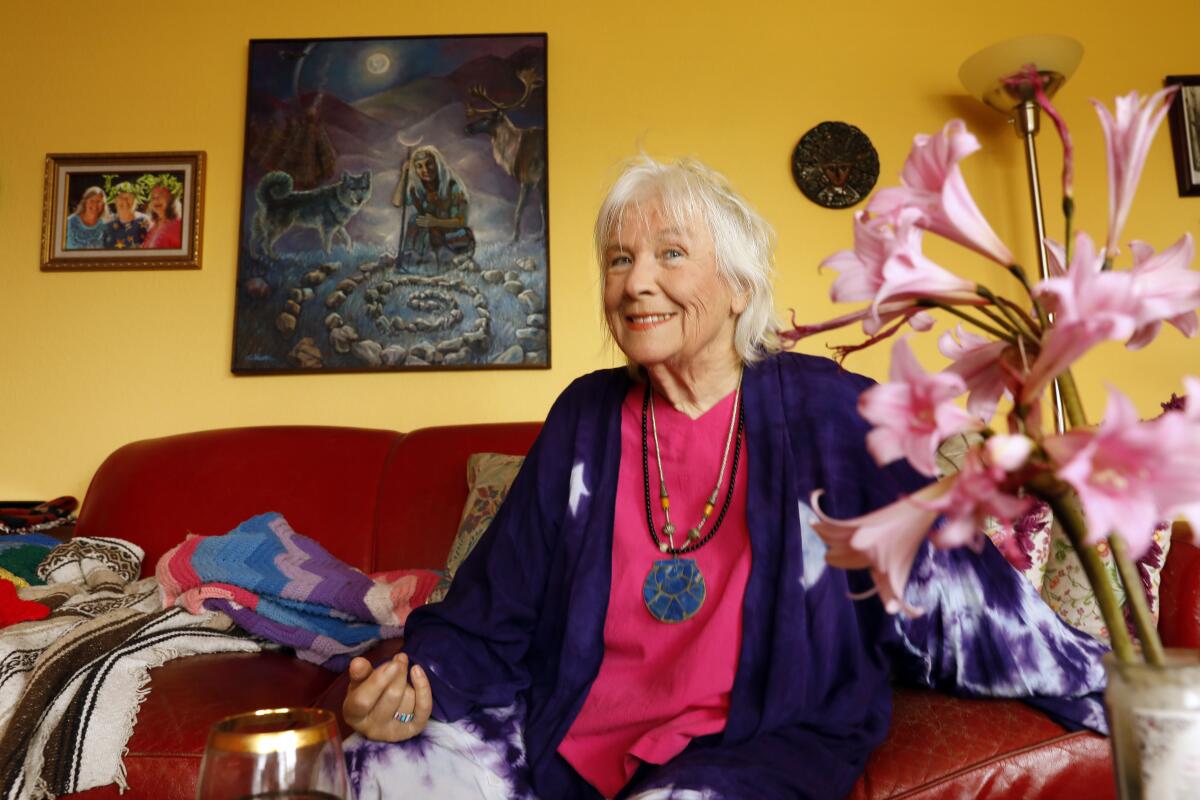
“That was their feminism,” Budapest said. “As long as the women were uneducated and couldn’t read or write, the vote meant nothing to them. The Hungarian feminists were pursuing education.”
When food was scarce, her parents sent her to a nunnery where she would have enough to eat.
“My mother said eat the food, and don’t listen to what they say,” Budapest said. “That was the prime directive.”
After participating in the Hungarian Revolution of 1956, she fled her homeland, finished high school in Austria and eventually moved to the United States in 1959, where she married an old boyfriend from Hungary who had resettled in Chicago. She enrolled at the University of Chicago and later studied improv at Second City.
In 1961 the family moved to Brooklyn and then to Port Washington, Long Island, where Budapest spent the next nine years raising her two young boys. “I think it was important I was a mommy,” she said. “Had I not had sons, I would have been much more strident against men.”
But she never believed that living as a Long Island housewife was her destiny.
“I told the boys, I’ll always be your mother, but I won’t be your mother here because I’m dying here,” she said. “I was so bored.”
In 1970, when her children were 9 and 11, her husband took them on a vacation with his mistress. Budapest seized the opportunity. She took a bus to Toronto and then hitchhiked to Los Angeles to remake herself again.
“I just felt like California, kiss me,” she said. “Everything was possible.”
A year after arriving in Los Angeles, Budapest was working as a gardener, falling in love with women and spending most of her free time at the Women’s Center, a small volunteer organization on Crenshaw near Pico. The center supported women in myriad ways: giving referrals for divorce lawyers and doctors, hosting classes like feminist mechanics and self-defense, and offering abortions, which were illegal at the time.
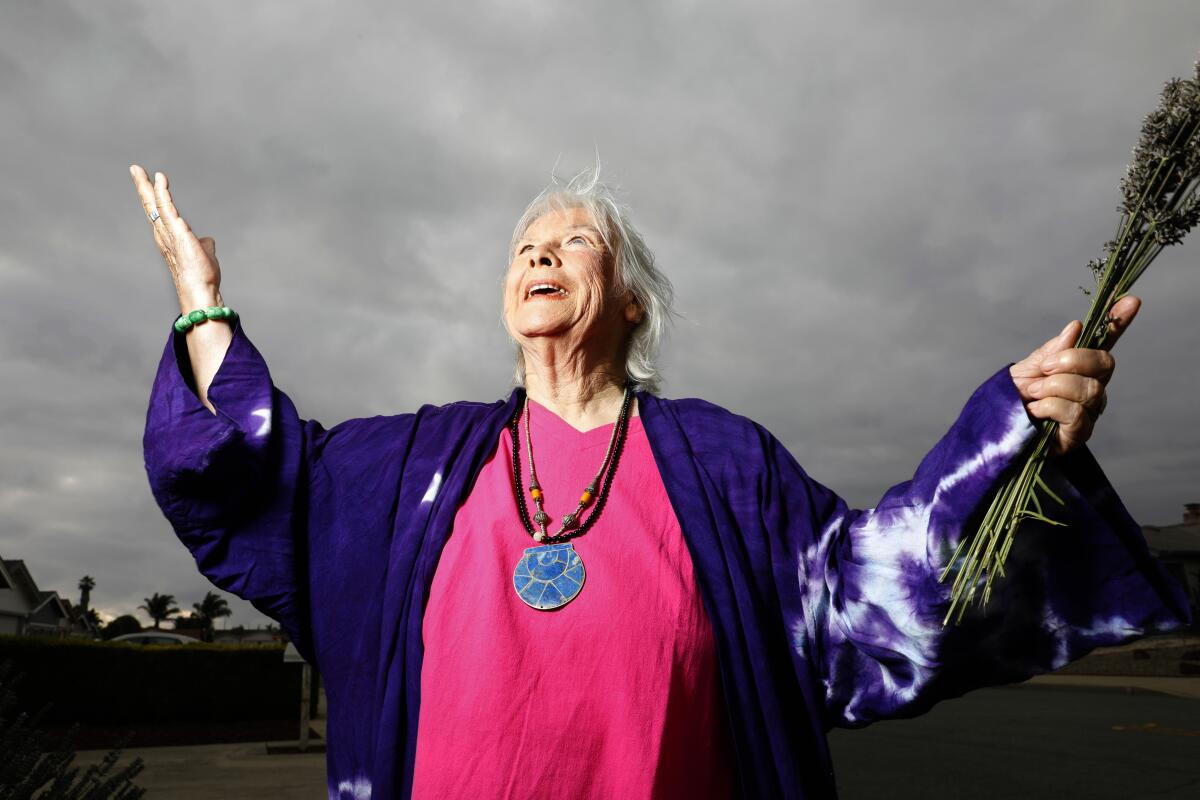
“Every Wednesday a doctor pulled up in a big van that was completely equipped, like a rolling hospital,” she said. “We helped him by preparing the women — giving them counseling, holding their hands and absorbing their stories. They were never good stories.”
It was at the center that Budapest first coined the name Z Budapest.
“Zsuzsanna is too confusing to Americans, but Z they can handle,” she said.
Budapest was a reference to the name she used when she escaped Hungary and sent a message to her parents to let them know she survived. It was originally supposed to be a pen name, but it stuck.
“Z Budapest became me,” she said.
The word got out that the witches had the best parties.
— Zsuzsanna Budapest, 81, who spoke about the coven gatherings in the mountains above Malibu
Budapest loved the woman-centered life she was building, but when she attended feminist marches and gatherings, she felt something missing.
“I decided that without mythology, spirituality and a real serious examination of what kind of religion had been fed to us, we would never get out of this mire,” she said. “And that’s when I decided we should have a coven.”
The Susan B. Anthony Coven No. 1 met in her apartment on Whitley Avenue for the first time on the winter solstice of 1971.
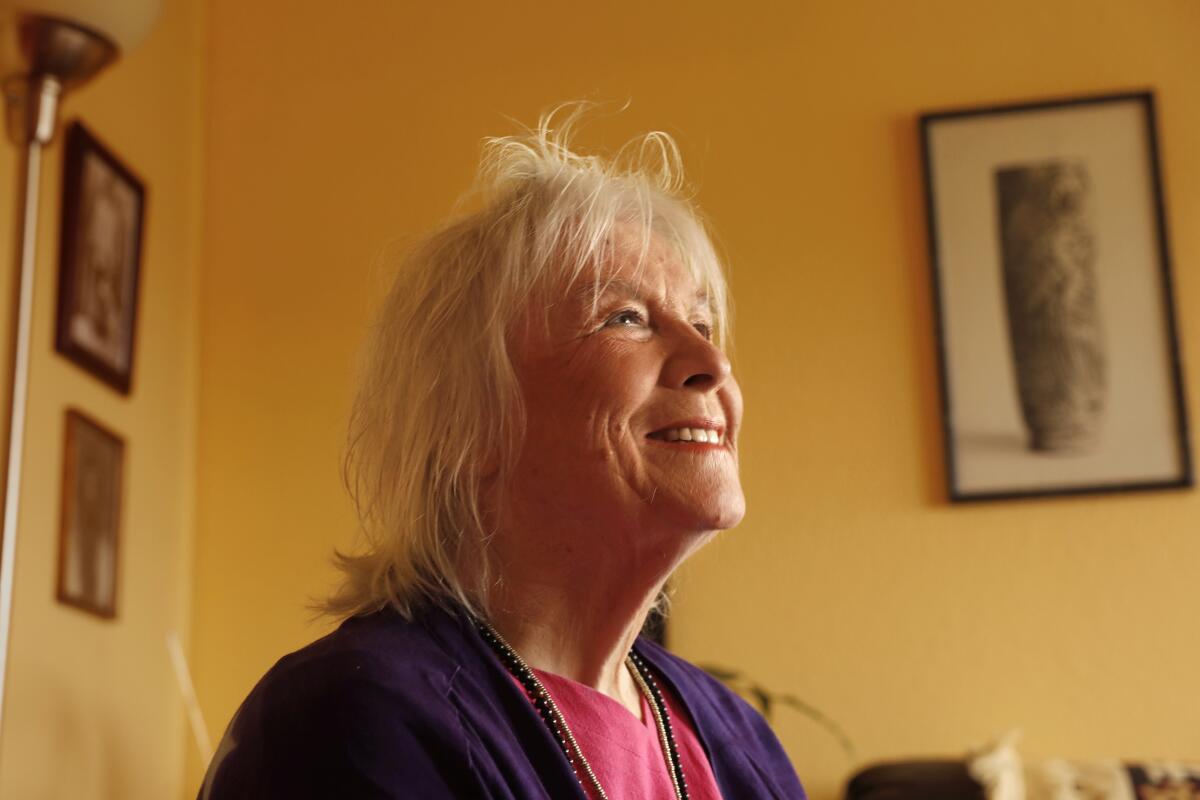
“We chose her name because Susan B. Anthony was a suffragist we all respected,” Budapest wrote years later. “She had her limitations. She was not perfect. And neither are we.”
Seven women attended the first meeting, including a PhD student at Berkeley and a taxi driver.
That first night they held hands in a circle and hummed to create energy. They started chanting, and when there was enough energy in the room Budapest told the women to call in departed loved ones from the other side. Once the ancestors had been summoned, she told them to drop their mouths and let sound rush out.
“I had all this theater in me,” she said, “and that’s what I relied on — theater and my improv instincts.”
With Budapest serving as high priestess, the coven grew. She found a wide flat space big enough for hundreds of women to gather in the mountains above Malibu, with a perfect view of the moon hanging over the sea. The gatherings took place every six weeks and included ritual invocations of the Goddess, poetry, music, dancing, food and homemade acid.
“The word got out that the witches had the best parties,” she said. “And it was all women, always, always. I was creating something that didn’t exist for women before, at least not since the 4th century when the Christians wiped it out.”
On Sunday mornings, coven members met at Mama’s Cafe and wrote down the rituals and spells they’d invented for rites of passage: naming newborns, healing after surgery, finding a home, finding a lover, regaining psychic balance after rape. Budapest collected these in her first book, “The Feminist Book of Lights and Shadows.”
I love myself. I am beautiful. It was an unseasonably chilly night for June in Los Angeles.
“Women studied with Z and then went on to form covens of their own,” Magliocco said. “Because there was no internet, it didn’t spread as quickly as it would today, or to as many people, but it spread.”
By 1972 Budapest had opened an occult shop, Feminist Wicca, in Venice, where she sold books and ritual items, taught classes on the Goddess and gave tarot readings for $10 a pop.
In February 1975, her life transformed yet again when a woman came to the store for a tarot reading.
Budapest immediately tried to reschedule. A cat had defecated under her reading chair, and the whole room stank. It was especially strange because she didn’t have a cat. In retrospect, she sees the incident as a warning from beyond.
“This was Grandmother,” she said. “They cannot do much from the other side, but they can create smells, and cat [poo] apparently.”
The woman insisted they do the reading that day, so Budapest grudgingly cleaned up the poop and pulled out her deck.
They discussed the woman’s precarious marriage (over), her potential move to Florida (yes), and whether her daughter would go to veterinary school (yes, but not immediately). When the reading was over, Budapest gave the woman a potion that would “bend people to her will” to help with the coming divorce proceedings.
Fifteen minutes later, two plainclothes policemen barged into the store and arrested Budapest. At the time, Los Angeles municipal code Section 43.30 outlawed all fortunetelling, both for and without pay.
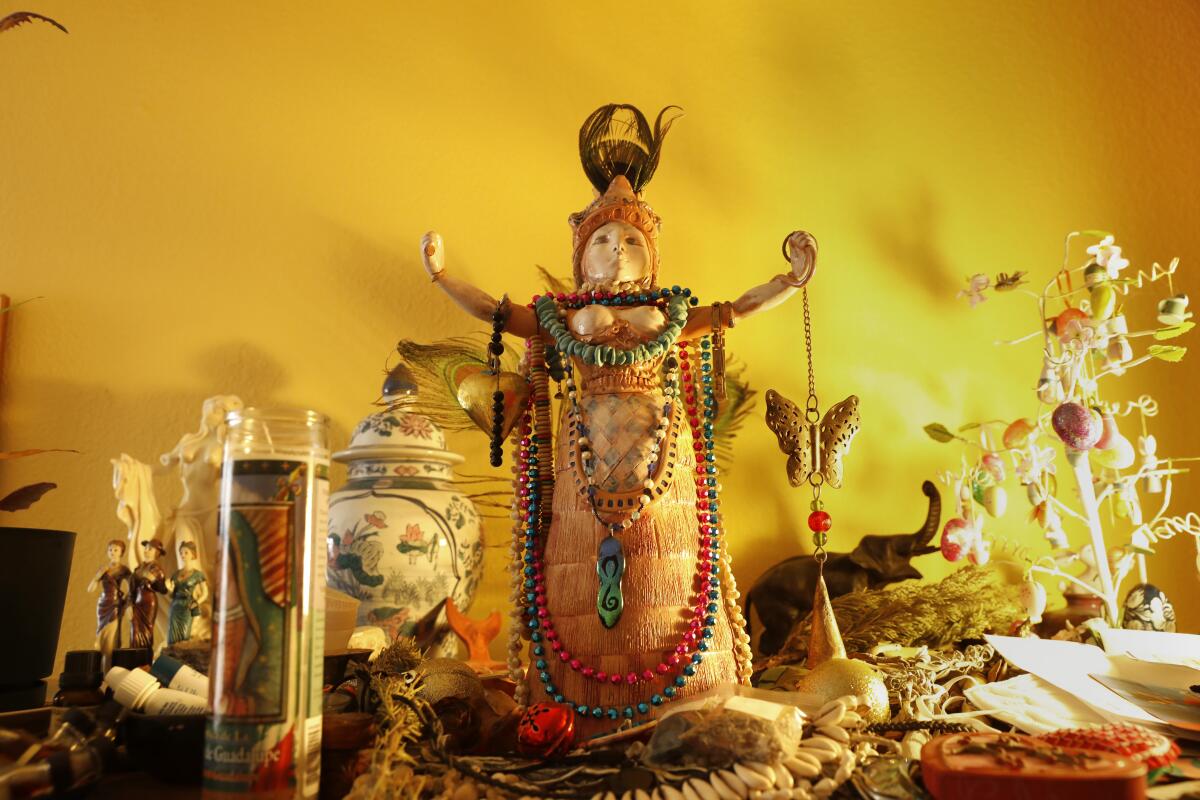
Budapest was not the only tarot reader arrested in a sting operation, but the others generally paid the $100 fine and got back to work. Budapest refused.
“I wasn’t a psychic for sale,” she said. “I was a lesbian feminist witch bitch. I will not back off, and I will not be humiliated.”
The feminist lawyer Marge Buckley posted her bail and agreed to take her case. Gloria Steinem contributed to her legal fees. Buckley and Budapest decided their goal was not just to get Budapest off, but to strike down the law entirely.
The day before the proceedings Budapest held a news conference at the Los Angeles Press Club declaring herself the first witch to go on trial in 300 years.
At the trial, the judge wondered whether demonstrators outside the courtroom were using voodoo dolls or planning to hex anyone. There was a lot of discussion about what credentials one needs to be considered a “high priestess,” and some confusion when Budapest referenced the animal queendom, instead of kingdom.
One of the arresting officers testified that as Budapest was escorted out of her store, she said: “I’m glad you arrested me. You are going to make me famous and rich.” But Budapest remembers the trial as a difficult time.
“During and before the trial, I was heavily medicating with wines from Napa Valley,” she said. “But we had so much support. No psychic had ever stood up to them before.”
They lost the case, but in time tarot card readers and similar practitioners would prevail. The California Supreme Court struck down bans on fortunetelling in 1985.
::
Budapest left Los Angeles for Oakland in 1980 and for the next 31 years wrote books and articles, gave lectures and held rituals at women’s conferences across the country.
When she could no longer climb the long flight of steps to her hillside home, she moved to a retirement community not far from Santa Cruz. From the outside, her place looks just like the other houses in the development. Inside, it’s a different story.
Flush with pandemic savings and eager to embrace all things wellness, wealthy consumers are seeking out huge crystals to decorate their homes and backyards.
Brooms are scattered throughout the house, a cauldron sits in the garden, and there’s a crystal ball tucked between arthritis cream and nasal spray on her bedside table.
There are altars in the living room and kitchen, and high on the wall in the hallway hang three identical masks — fierce female faces with black teeth bared and black snakes dangling down like hair.
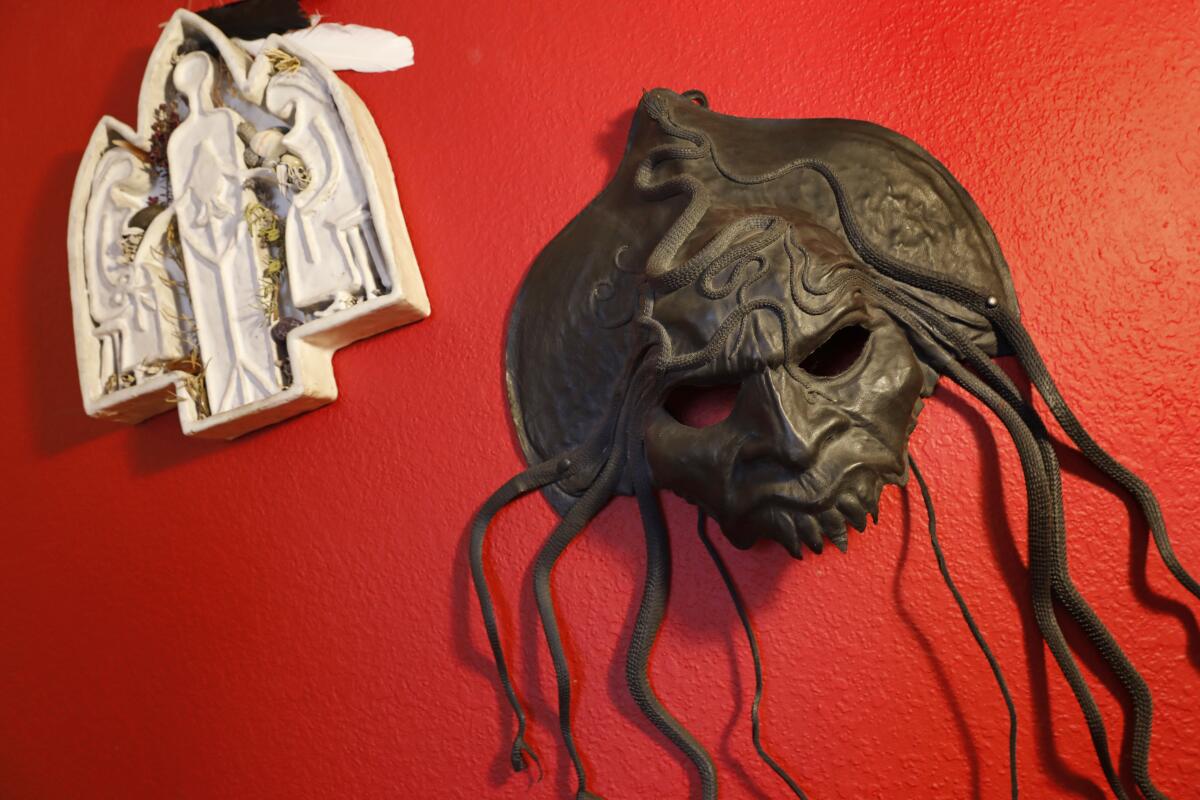
“These are the three fates,” Budapest said. “We use them in initiation rituals. The Goddess is not just light, she is death, she is Kali.”
These days Budapest is largely retired from ritual work, but still invites controversy and criticism, sometimes from fellow feminists.
In 2011, attendees at a pagan conference staged a protest when she held a self-blessing ritual, performed in the nude, and barred transgender women, as well as men, from participating.
Budapest says she has compassion for trans women, but refuses to change her rituals.
Talia Bettcher, a professor of philosophy at Cal State L.A., said this trans exclusionary stance is common — though not universal — among women like Budapest who were grounded in lesbian separatism, a political vision that originated in the ’70s.
For these women, who fought sexist and heterosexist oppression in part by largely excising men from their lives, sex is immutable.
“My understanding is that Z is an essentialist — but it’s not just about biology — it’s like a female spirit or essence,” Bettcher said. “She is very much a reflection of a moment in time.”
The same defiance that made Budapest a feminist hero in the ’70s has made her a divisive figure for many modern witches today.
“A lot of us would be wearing Z Budapest T-shirts if we didn’t know this one thing,” said Amy Torok, co-host of the podcast Missing Witches and who co-wrote a book of the same name. “If I met Auntie Zsu Zsu, I’d thank her for everything she’s done, and say that she is really missing out on some amazing friends and collaborators.”
These days Budapest’s life is generally quiet. She eats a large oatmeal cranberry raisin cookie for breakfast each day. She smiles at cute animal pictures on Facebook. She watches YouTube videos of Latvian and Russian folk dances and remembers how she participated in similar dances in her youth.
And she thinks often about how she will break into the L.A. writing world to sell her scripts. In addition to her Baba Boogie series, she has a few comedic romances ready to go: “To Die and Go to Woodstock” and “Pretty Girl Ibronka.”
At 81, she’s not done yet. She’s an Aquarian, after all.
More to Read
Sign up for Essential California
The most important California stories and recommendations in your inbox every morning.
You may occasionally receive promotional content from the Los Angeles Times.

